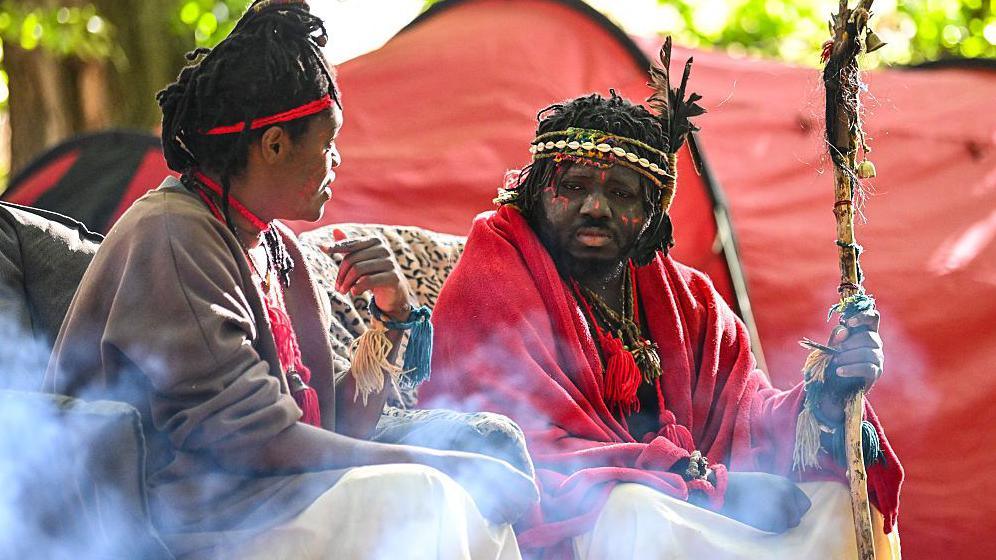'African tribe' facing second eviction from Borders woods
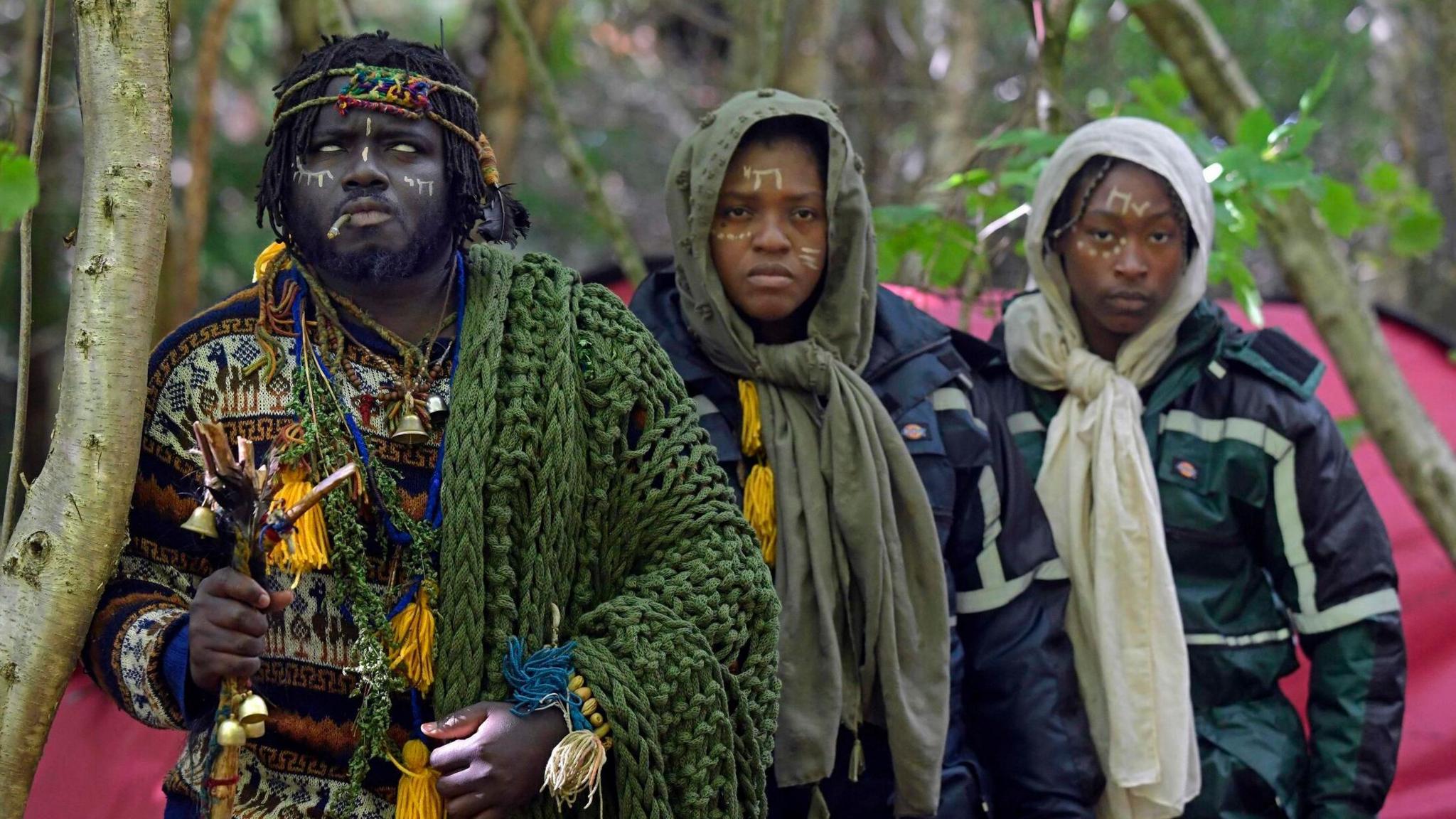
The three members of the self-proclaimed Kingdom of Kubala group have been living in the woodland near Jedburgh for weeks
- Published
A self-styled "African tribe" is facing a second eviction from a makeshift camp in woodland in the Scottish Borders.
The three members of the self-proclaimed Kingdom of Kubala group were evicted from their first encampment, on privately-owned land near Jeburgh, by sheriff officers on Tuesday morning.
But they set up a new camp on council land just a few metres away on the other side of a wire fence.
Sheriff officers have returned to give notice of a fresh eviction application from Scottish Borders Council, which could be granted and enforced early next week.
The "tribe" have been living in the wood for several weeks.
They said they were reclaiming land that was stolen from their ancestors 400 years ago - but the local authority said they were breaking the law.
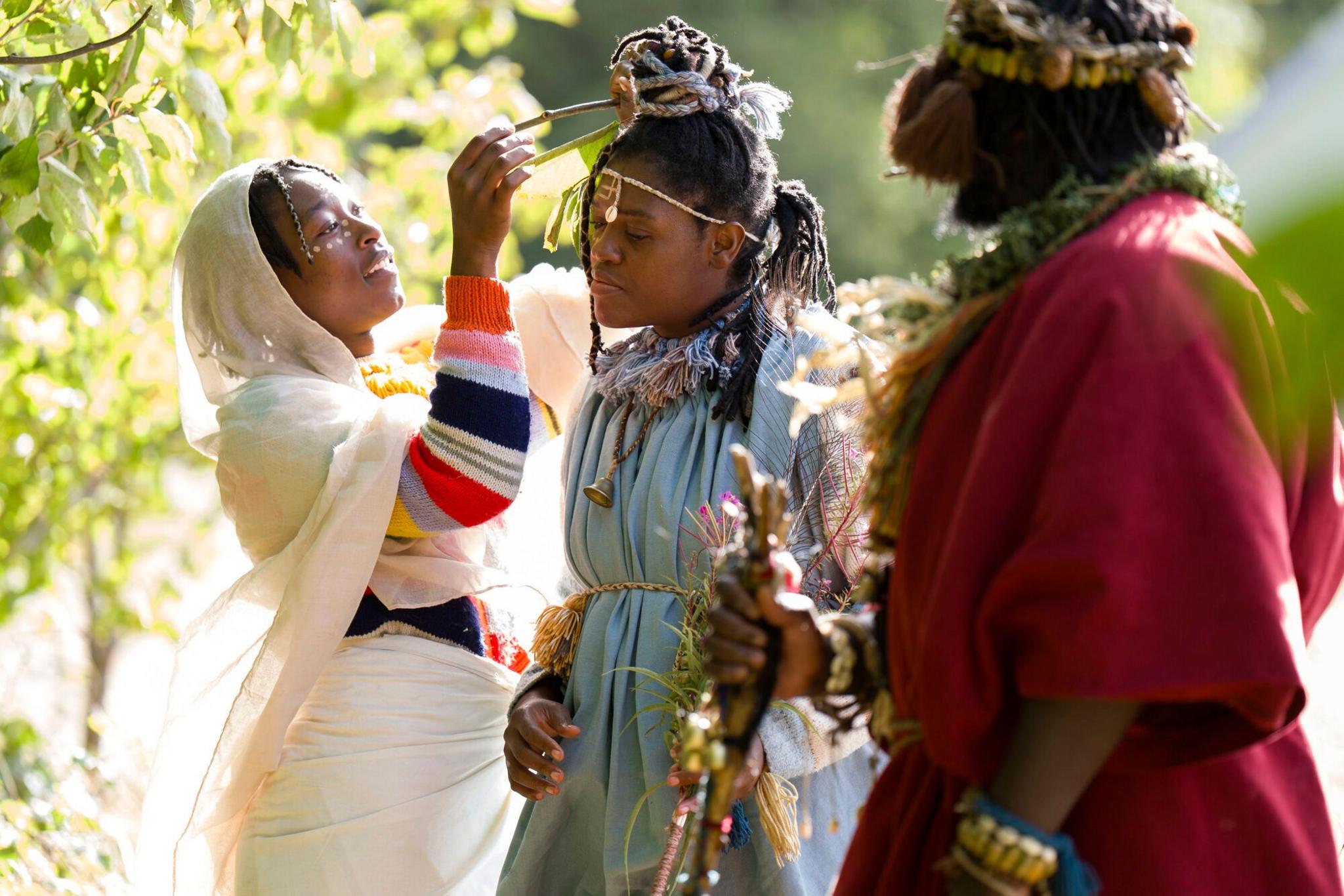
The group have attracted a large following on social media
Ghanaian Kofi Offeh, 36, and Jean Gasho, 42, who is originally from Zimbabwe, first arrived in the Jedburgh area in the spring.
Describing themselves as King Atehehe and Queen Nandi, they set up camp on a hillside above the town.
They were joined by "handmaiden" Kaura Taylor, from Texas, who calls herself Asnat.
The group have a growing online presence, with more than 100,000 followers on TikTok and Facebook, and have received worldwide media attention.
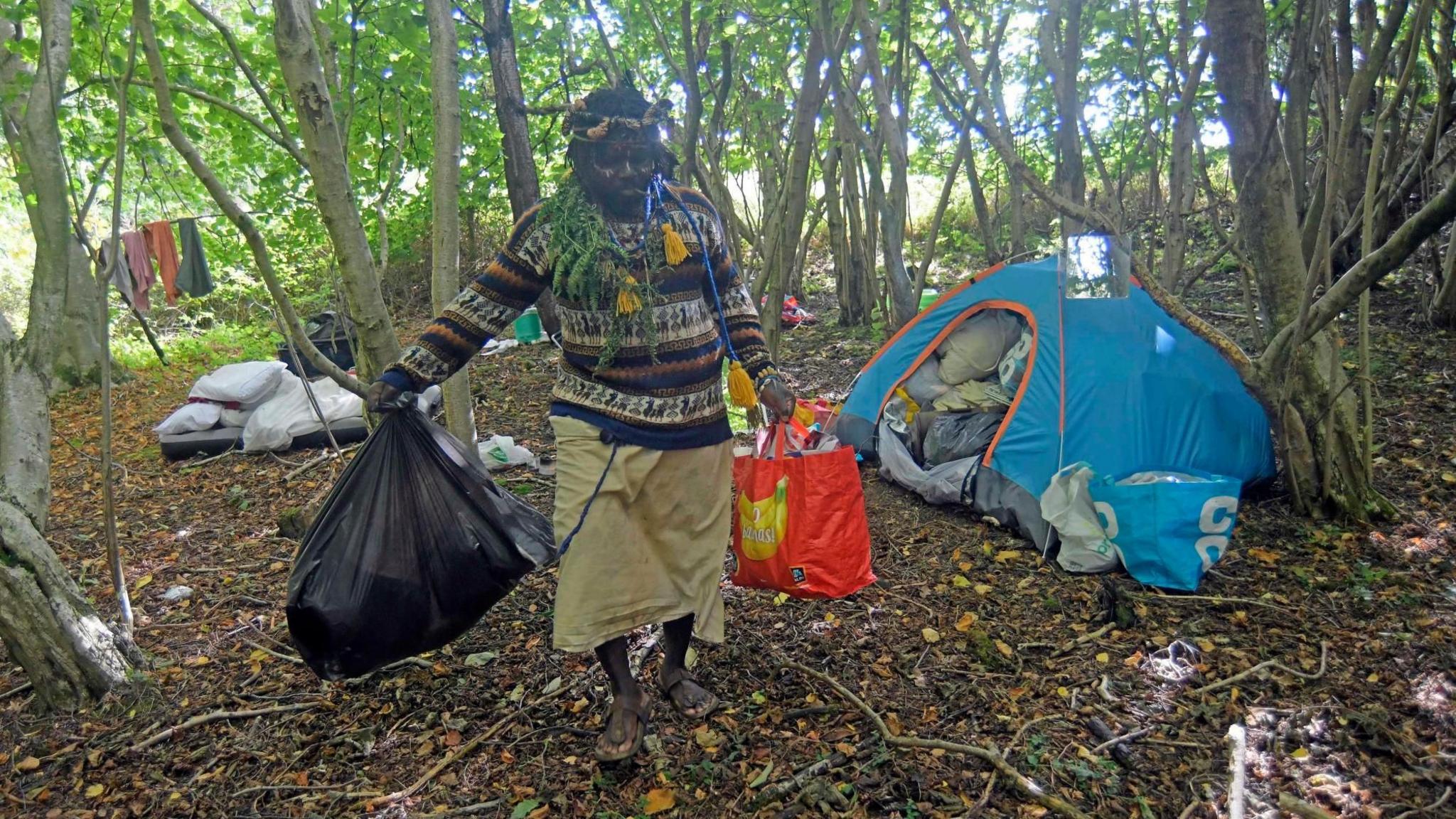
Kofi Offeh, who calls himself King Atehehe, was evicted from the woodland site on Tuesday alongside the rest of the group
Scottish Borders Council initially evicted the trio from the hillside site above Jedburgh in July.
But instead of leaving the area, they moved about a mile out of town to a woodland next to an industrial estate.
David and Mary Palmer, who own the land, successfully applied to the courts for the tribe to be evicted. They were removed by sheriff officers on Tuesday.
However the "tribe" simply moved a few metres over a fence to land belonging to the Scottish Borders Council.
The council has been approached for comment.
Related topics
- Published16 September
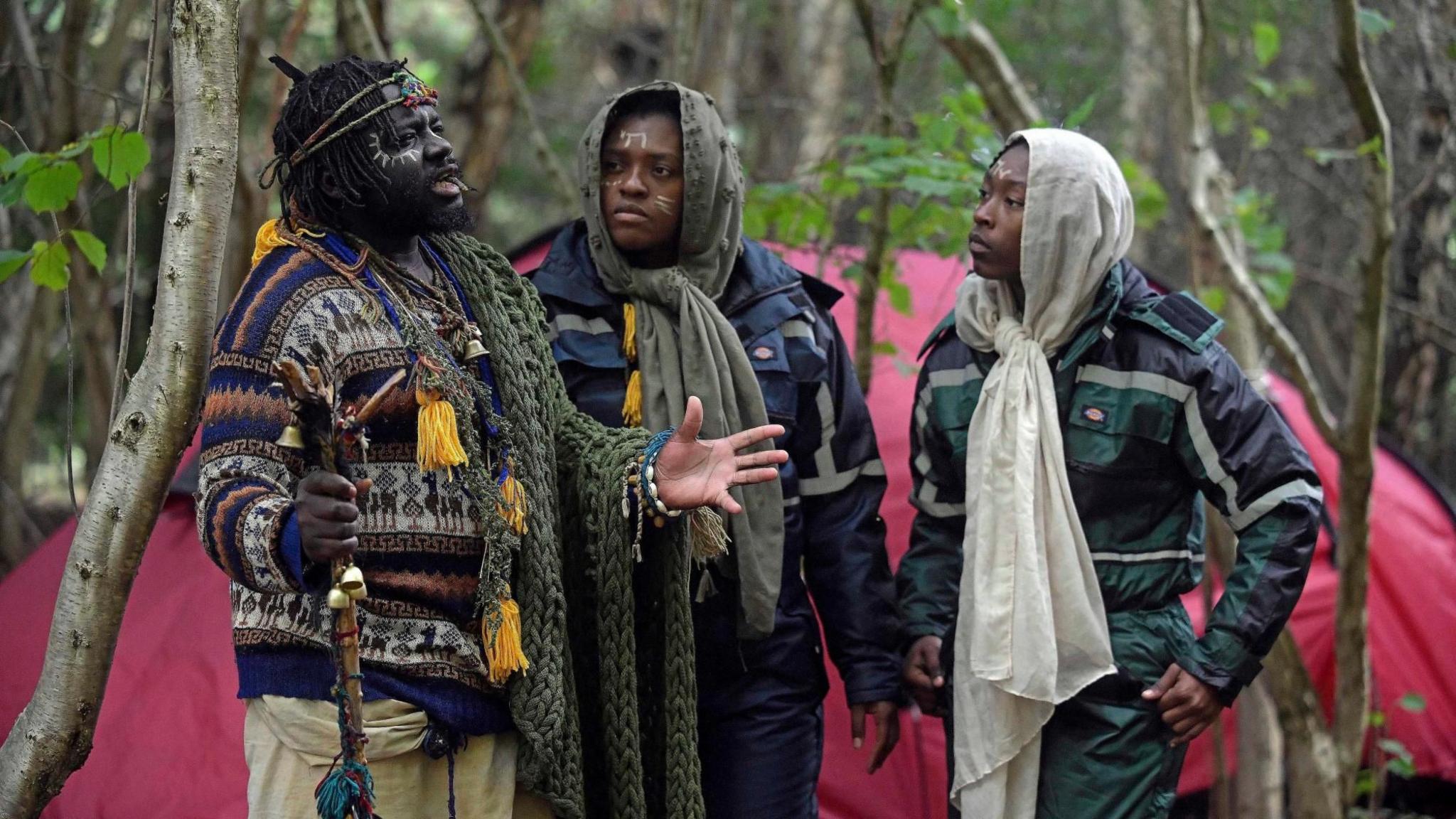
- Published12 September
